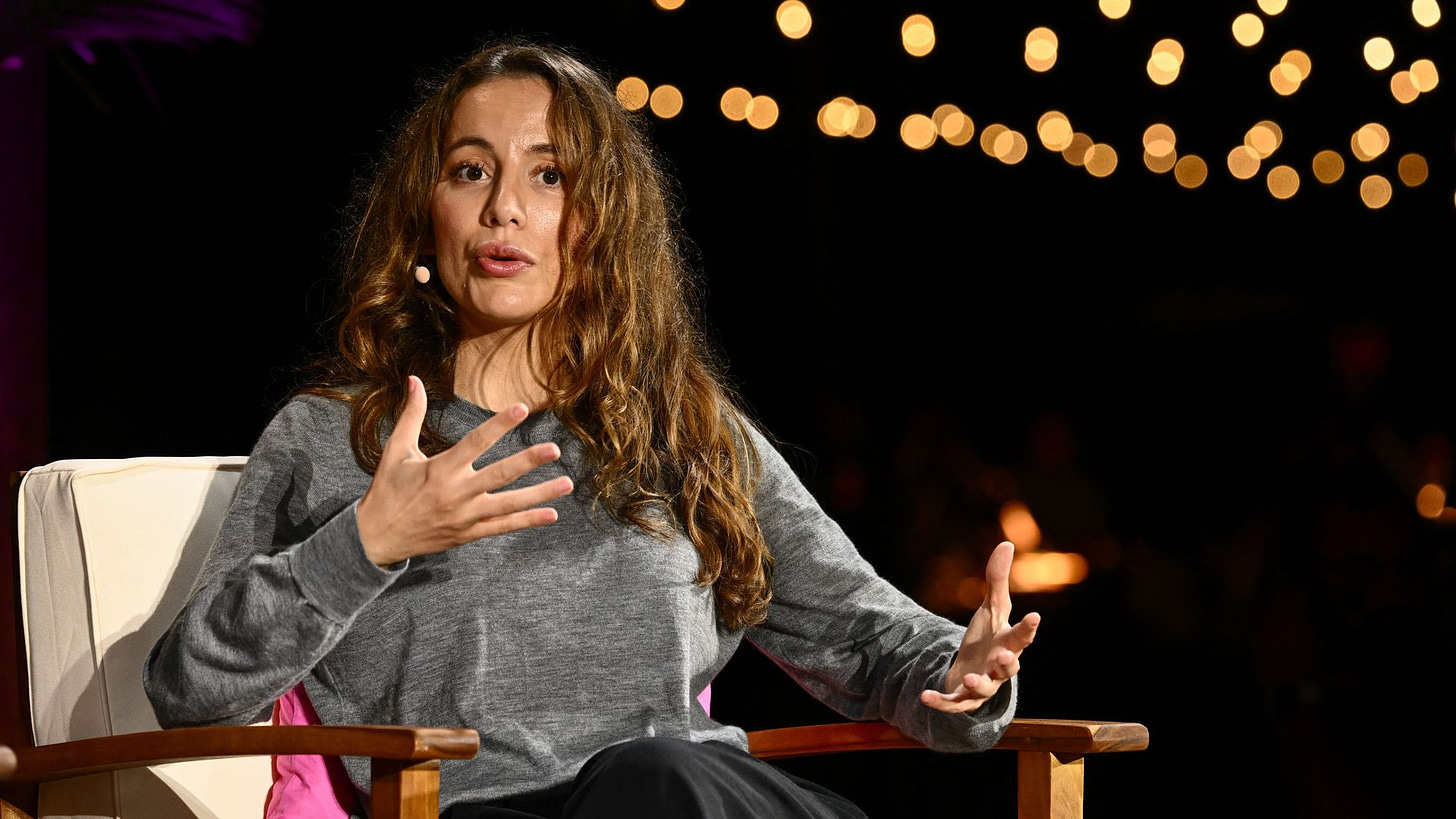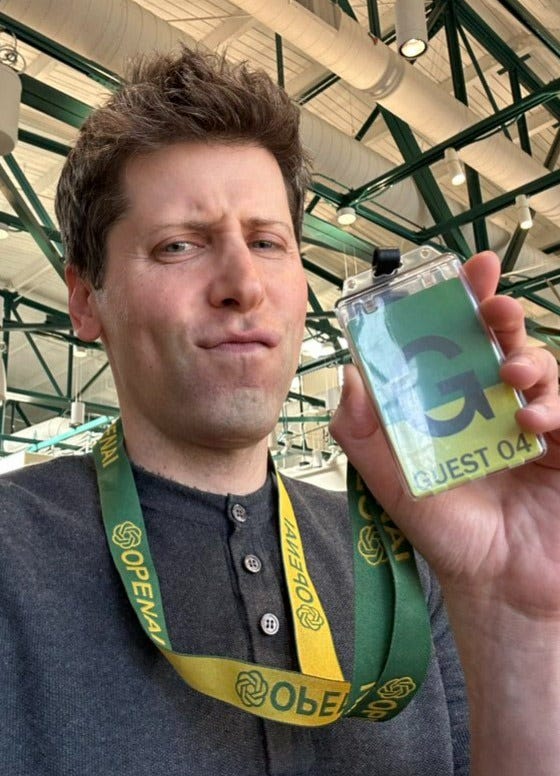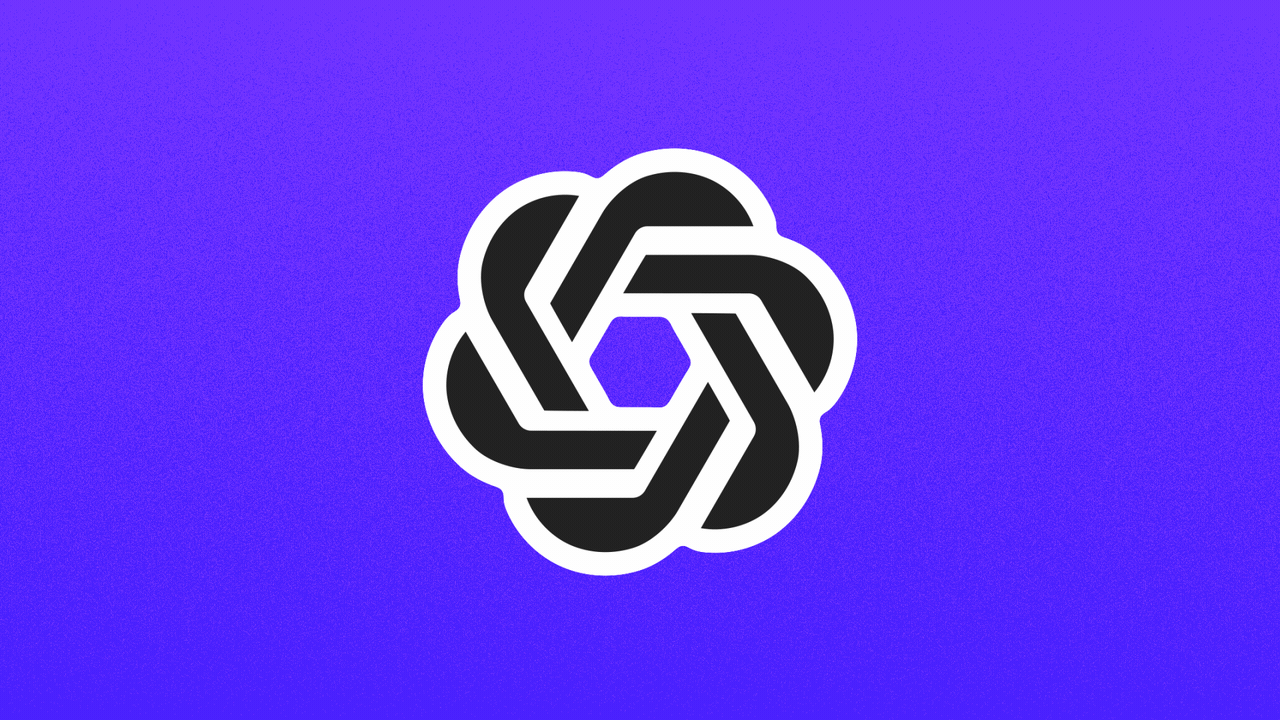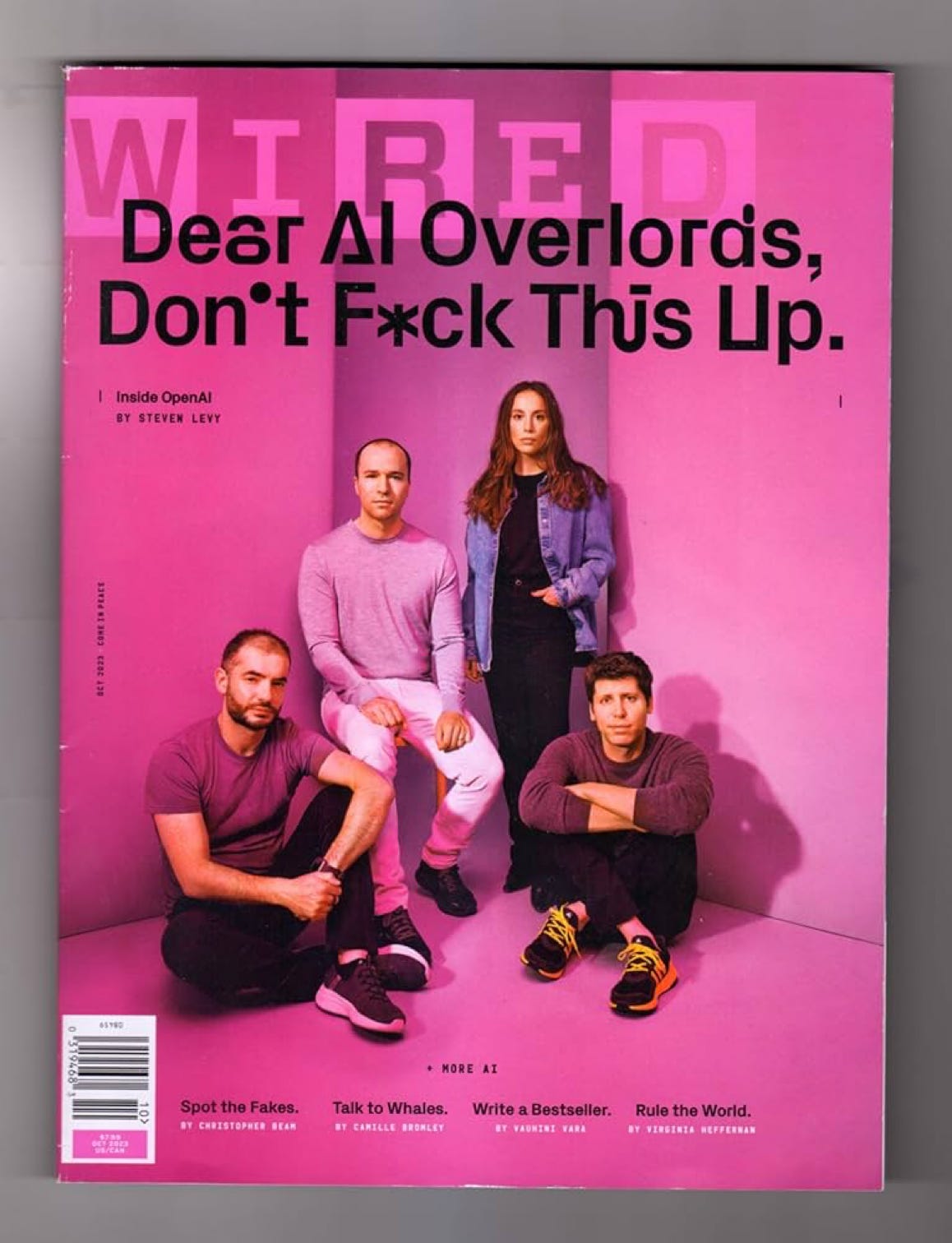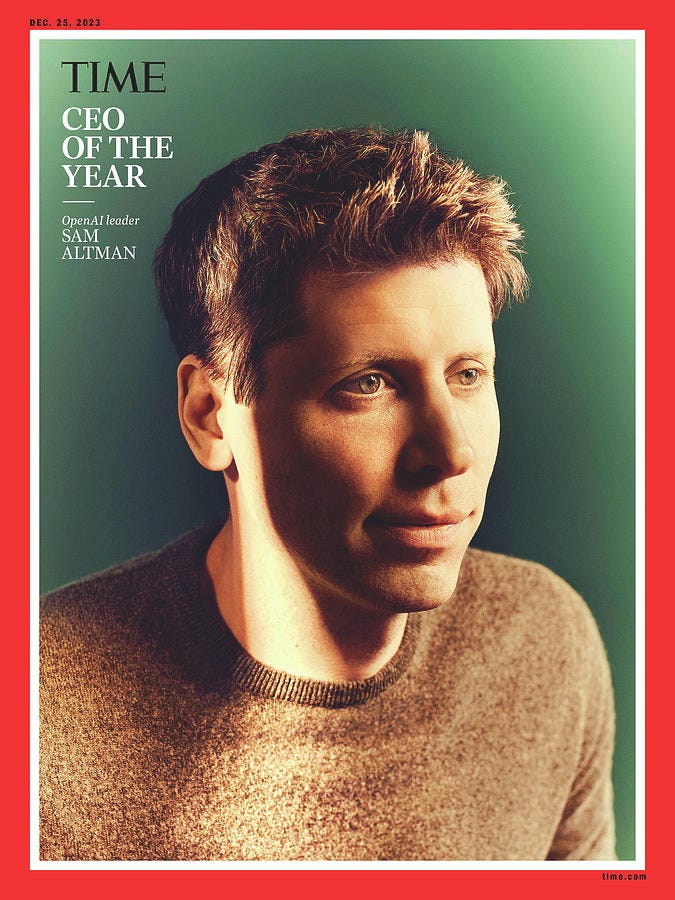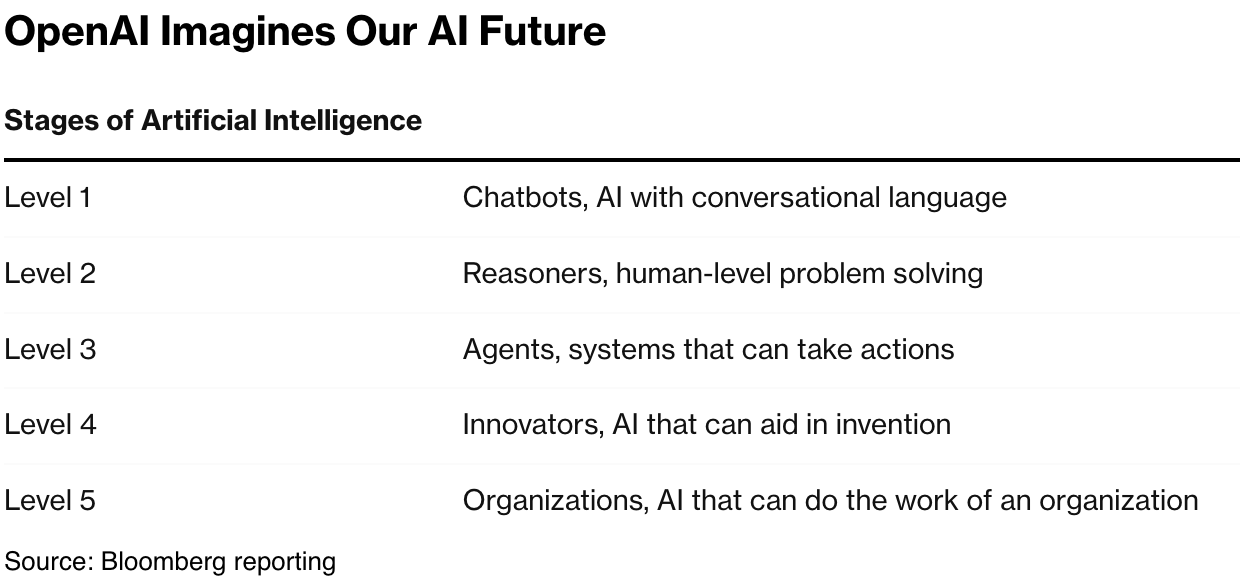
AI: OpenAI's 'best and worst of times'. RTZ #492
Yesterday, I discussed how ‘two opposing things can be true at once’. It’s likely what Charles Dickens had in mind when he opened ‘A Tale of Two Cities’ with “It was the best of times, it was the worst of times”.
As compelling a hook into a beefy book as it gets.
It echoes when one looks at OpenAI today. A tale of ‘two opposing things that can be true at once’ indeed.
Depending on how one observes it, OpenAI is either coming at apart top down, or never been in a stronger place. With most of its founders and senior AI tech folks leaving in recent weeks, while concurrently just ramping up a formidable array of industry leading products either released or to be released.
While also on the cusp of closing the largest funding in US private tech company history (around $6.5 billion at a $150 billion valuation), and a global AI repetitional leadership position thanks to its founder/CEO Sam Altman.
Quite the narrative setup just two months shy of OpenAI’s second anniversary of its ‘ChatGPT moment’. The product that kicked off a widely debated, global multi-hundred billion dollar AI Tech Wave, that will likely eclipse most prior tech waves.
Let’s start with the ‘worst of times’ part first. As Axios summarizes it in “CTO Mira Murati leaves OpenAI as other execs depart”:
“OpenAI CTO Mira Murati is leaving the company after 6½ years “to create the time and space to do my own exploration,” she announced in an X post on Wednesday.”
“Driving the news: CEO Sam Altman announced the departure of two other executives and made several new appointments at the end of the day.”
“Also departing OpenAI are Bob McGrew, chief research officer, and Barret Zoph, VP of research, Altman said in a post on X.”
-
“Mira, Bob, and Barret made these decisions independently of each other and amicably,” Altman’s post said.”
-
“Mark Chen will be OpenAI’s new senior VP of research and Jakub Pachocki will become chief scientist, per Altman’s post.”
“Murati’s exit is resurfacing a series of existential questions that have surrounded OpenAI since last year’s abrupt firing and rehiring of Altman.”
-
“These departures come on top of a series of previous exits, including co-founder Ilya Sutskever and Jan Leike, who headed the company’s long-term safety effort known as “superalignment.”
-
“Also swirling is the question of whether a restructuring could follow a new round of investment, potentially shifting the company further from its non-profit roots.”
So far, so bad? Axios then provides some of the ‘Best of Times’ part in “OpenAI weighs shift to for-profit structure as it finalizes funding deal”:
“The big picture: OpenAI is close to finalizing a new investment round reported to be around $6.5 billion, which would make it the largest venture capital round of all time, per Axios’ Dan Primack.”
“OpenAI’s board is continuing to consider restructuring the company in ways that might change its current control by a non-profit organization, but no final plan has been adopted, according to a source familiar with the matter.”
“Why it matters: As Axios reported last November, the ChatGPT maker began weighing governance changes in the aftermath of the boardroom battle that saw CEO Sam Altman fired and then rehired in the course of a week.”
The other part of ‘the best of times’ are of course are the strong product flow from OpenAI, from its ‘AI reasoning o1’ (formerly known as ‘Strawberry’), to the highly anticipated GPT-5 (aka ‘Orionr/GPT-NeXT) potentially due this winter.
And of course the long-term optimistic vision of AI I summarized a few days ago for OpenAI, on its way to lead the ‘Intelligence Age’, as pithily summarized by Sam Altman with ‘deep learning worked’.
Gary Marcus, as long-time critic of the LLM AI wave today, summarized the negative case for OpenAI in “OpenAI’s slow-motion train wreck”. Starting with a famous picture of its four most prominent co-founders and leadership team:
“From left to right that’s Ilya Sutskever (now gone, less than a year later), Greg Brockman (on leave, at least until the end of the year), CTO Mira Murati (departure just announced) and Sam Altman (fired, and then rehired).”
“Co-founders John Schulman also left, so did Andrej Karpathy and Jan Leike, and perhaps a dozen others.”
“GPT-5 hasn’t dropped, Sora hasn’t shipped, the company had an operating loss of $5b last year, there is no obvious moat, Meta is giving away similar software for free, many lawsuits pending.”
“Yet people are valuing this company at $150 billion dollars.”
From my vantage point, OpenAI still nets out at the ‘Best of Times’ side for now, despite the ‘Worst of Times’ near-term events.
In my experience, most major tech companies go through founder/management turnover in their early years. Google saw the addition of ‘grown up’ CEO Eric Schmidt by its Board in 2001, to its dynamic duo co-founding team of Page and Bring. And never looked back.
Facebook, which started with five co-founders in 2004 at Harvard, saw its management consolidate around Mark Zuckerberg over the next five years. And never looked back.
Sam Altman in many ways is taking the steps needed on management, organizational, product roadmap, global regulatory imperatives, and of course the unprecedented funding needed to Scale the AI opportunities ahead of it. He and his team is proactively discussing the developments, both inside and outside the company. Accepting that not all the developments are going to be up and to the right at the same time.
Both current and new investors in the big round closing soon, be they financial, corporate, or sovereign, are likely going into the company with ‘eyes wide open’. Presumably after having done their due diligence.
They’ve likely figured out their return expectation probabilities entering at an unusual $150 billion valuation for a private company. They’re figuring out what will it take for the company to get to a 3x or better return over the next five to ten years, relative to the short and long-term risks. It’s the typical risk/reward outcome that most long term investors generally seek. At a company that for now has momentum on its industry leading products at this stage of growth. And compare well against the metrics pace of the best that came before, from Google to Meta and more.
Two opposing ideas can be true at the same time. Companies, like people, can go through the worst and best times at the same time.
OpenAI ‘just’ needs steady execution and has a laser eye on its North Star (AGI).
OpenAI’s Sam Altman seems to have those priorities down. And is now apparently heads down in execution mode. As he said on X/Twitter yesterday explaining the management changes:
“I have over the past year or so spent most of my time on the non-technical parts of our organization; I am now looking forward to spending most of my time on the technical and product parts of the company.”
He’s setting his course at the helm.
Presumably to also never look back. Stay tuned.
(NOTE: The discussions here are for information purposes only, and not meant as investment advice at any time. Thanks for joining us here)

